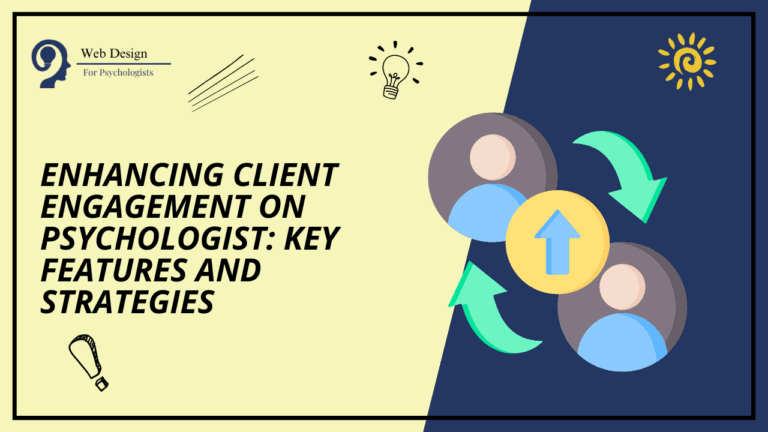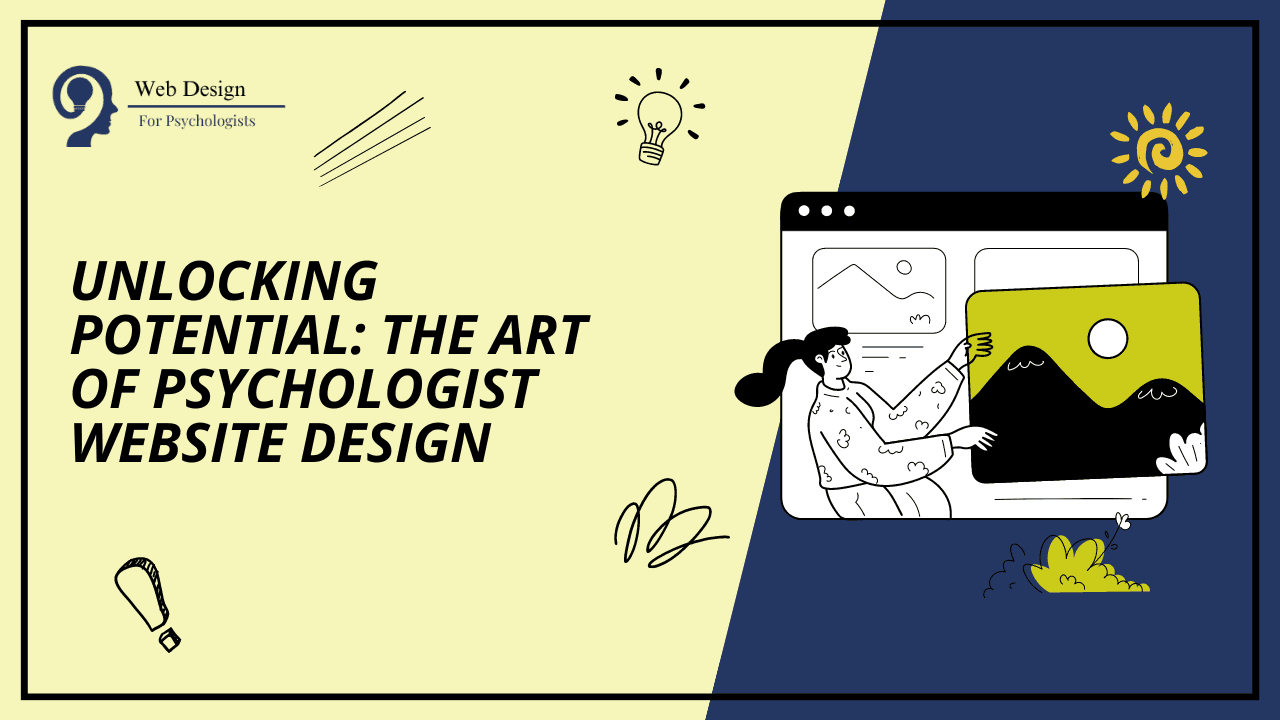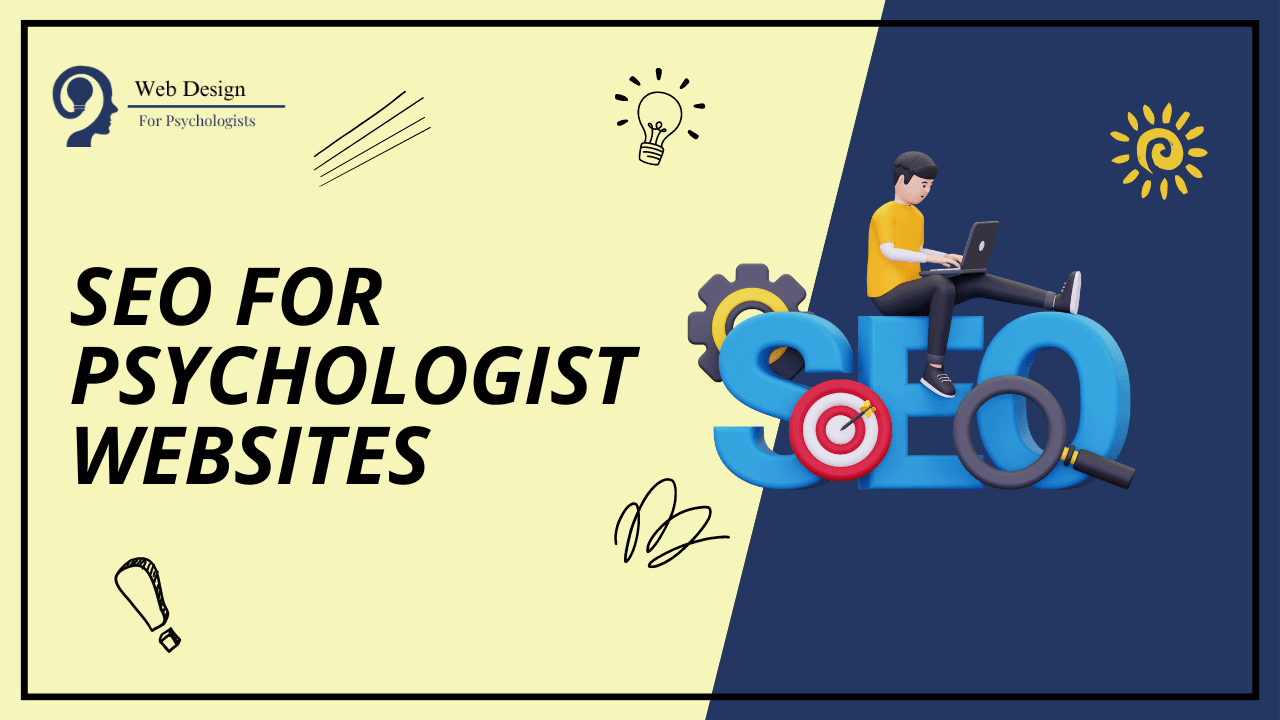In the digital age, a psychologist’s website serves as a critical bridge between professionals and their clients. Enhancing client engagement on psychologist websites involves not just attracting visitors, but also fostering meaningful interactions that can lead to better therapeutic outcomes. This article explores the key features and strategies to enhance client engagement on psychologist websites, focusing on incorporating features like contact forms, appointment scheduling, and live chat, encouraging interaction and communication with visitors, and providing resources and information to support clients’ needs.
Key Features for Enhancing Client Engagement
1. Contact Forms

Contact forms are essential for facilitating easy communication between psychologists and potential clients. A well-designed contact form should be simple, intuitive, and accessible from multiple pages of the website. Key elements include:
- User-Friendly Design: Minimize the number of required fields to avoid overwhelming visitors. Essential fields might include name, email, phone number, and a message box.
- Clear Instructions: Provide clear instructions and examples to help users understand what information is required.
- Prompt Responses: Ensure that inquiries submitted via contact forms receive prompt and professional responses, ideally within 24 hours.
By making it easy for clients to reach out, psychologists can build trust and open the door to further engagement.
2. Appointment Scheduling
Online appointment scheduling systems have revolutionized the way clients book sessions with their psychologists. These systems offer several advantages:
- 24/7 Availability: Clients can book appointments at their convenience, without being limited to office hours.
- Automated Reminders: Reduce no-shows and last-minute cancellations by sending automated reminders via email or SMS.
- Real-Time Availability: Allow clients to see real-time availability and choose a time slot that works best for them.
Integrating an appointment scheduling system into your website can significantly enhance client satisfaction and streamline administrative tasks.
3. Live Chat
Live chat functionality provides immediate assistance to website visitors, enhancing their overall experience. The benefits include:
- Instant Support: Clients can get answers to their questions in real time, reducing frustration and increasing the likelihood of them booking an appointment.
- Personalized Interaction: Use chatbots for initial queries and transition to live agents for more complex questions, ensuring a personal touch.
- Data Collection: Gather insights on common client questions and concerns, which can inform website content and service offerings.
A responsive live chat feature can make your website feel more welcoming and approachable, encouraging visitors to take the next step.
Encouraging Interaction and Communication
To further enhance client engagement, psychologists should focus on strategies that encourage interaction and communication with website visitors. Here are some effective approaches:

1. Interactive Content
Interactive content can make your website more engaging and informative. Consider incorporating the following:
- Quizzes and Assessments: Self-assessment tools related to mental health can help clients identify their needs and encourage them to seek professional help.
- Surveys and Polls: Gather feedback from visitors about their experience on your website or their mental health concerns. Use this information to improve your services and content.
- Interactive Infographics: Visually appealing and interactive infographics can simplify complex psychological concepts and engage visitors more effectively.
Interactive content not only keeps visitors on your site longer but also provides valuable insights into their needs and preferences.
2. Blog and Articles
A well-maintained blog can position you as an authority in your field and provide valuable information to your clients. Key tips for a successful blog include:
- Regular Updates: Publish new content regularly to keep your audience engaged and returning to your site.
- Relevant Topics: Focus on topics that address common mental health issues, treatment approaches, and self-care tips.
- Guest Contributors: Invite other professionals to contribute to your blog, offering diverse perspectives and expertise.
By providing high-quality, relevant content, you can build trust with your audience and encourage them to engage more deeply with your services.
3. Testimonials and Success Stories
Sharing testimonials and success stories can provide social proof of your effectiveness as a psychologist. Consider these best practices:
- Authenticity: Use real testimonials from clients who are willing to share their experiences. Ensure they give explicit permission for their stories to be used.
- Diverse Voices: Include testimonials from a diverse range of clients to show your ability to help different types of people.
- Multimedia: Use written testimonials, videos, and audio recordings to make the stories more engaging and relatable.
Testimonials and success stories can help potential clients feel more confident in their decision to seek help from you.
Providing Resources and Information
Another critical aspect of enhancing client engagement is providing resources and information that support clients’ needs. This includes:
1. Resource Libraries

Create a comprehensive library of resources that clients can access at any time. This might include:
- Articles and Guides: Provide in-depth articles and guides on various mental health topics.
- E-Books and Whitepapers: Offer downloadable e-books and whitepapers for clients seeking more detailed information.
- Videos and Webinars: Create video content and host webinars to educate clients on mental health issues and coping strategies.
A well-stocked resource library can serve as a valuable tool for clients looking for information and support outside of their sessions.
2. Frequently Asked Questions (FAQs)
An FAQ section can address common client concerns and questions, providing immediate answers and reducing the need for direct contact. Effective FAQ sections should:
- Be Comprehensive: Cover a wide range of topics, from appointment booking and billing to treatment methodologies and confidentiality.
- Use Clear Language: Avoid jargon and ensure that the information is accessible to all visitors.
- Be Easily Accessible: Place the FAQ section in a prominent location on your website, such as the main menu or footer.
An informative FAQ section can help manage client expectations and reduce barriers to engagement.
3. Mental Health Tools and Apps
Recommend and, if possible, provide access to mental health tools and apps that can support clients’ well-being between sessions. These might include:
- Meditation and Mindfulness Apps: Help clients manage stress and anxiety through guided meditation and mindfulness practices.
- Mood Tracking Tools: Allow clients to track their moods and identify patterns that can be discussed in therapy sessions.
- Online Support Groups: Provide information about online support groups that clients can join for additional peer support.
By offering these tools and resources, you can empower clients to take an active role in their mental health journey.
Conclusion
Enhancing client engagement on psychologist websites requires a multifaceted approach that incorporates key features like contact forms, appointment scheduling, and live chat, encourages interaction and communication, and provides valuable resources and information. By implementing these strategies, psychologists can create a more engaging, supportive, and effective online presence, ultimately improving client outcomes and satisfaction.
Remember, the goal is not just to attract visitors to your website but to foster meaningful connections that can lead to better therapeutic outcomes. By prioritizing client engagement, psychologists can ensure that their websites serve as a valuable extension of their practice, providing support and resources to those who need it most.




